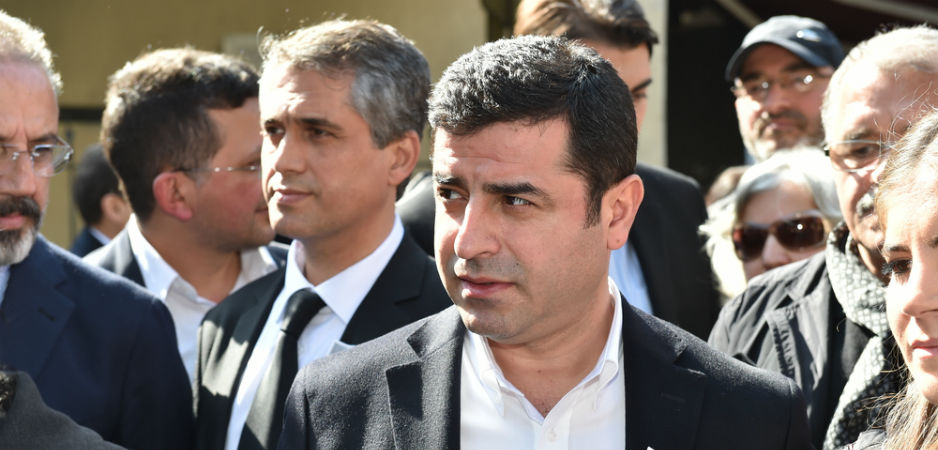The latest elections in Turkey resulted in a majority for the AKP, but what will happen to the “Kurdish issue”?
It has been a deadly summer in Turkey. Three suicide bomb attacks in less than six months have killed over 130 people, wounding hundreds more. Many of the victims were Kurdish in origin. Ironically, specifically on two occasions, Kurdish groups were taking part in peace rallies aimed at building relations between Kurds and Turks after they had broken down the year before.
In June, the Peoples’ Democratic Party (HDP), which is pro-Kurdish, reaped 80 seats—arguably the main reason preventing the Justice and Development Party (AKP) from forming a majority government. Under Selahattin Demirtaş, the HDP soldiered on to fight again when he was willing to form a coalition government as a fourth partner.
But in November, the HDP lost 20 seats, largely to the AKP in areas where the ruling party was able to ratchet up fear in relation to an enduring conflict that has plagued the modern nation since its inception. The strategy was calculated to do most damage to a community already facing the rough end of a stick held firm by the strong grip of the state.
Although instigating the 2012 Kurdish-Turkish peace process, in 2015, the AKP instrumentalized the conflict to sow fear into the hearts of the people of Turkey, alluding to the idea of saving the nation from its enemies. In many areas, the AKP actively sought to stoke the fires of what is the struggle of recognition among Kurds, who have been denied their language, heritage and equality.
This approach also created unease among Kurds who eventually switched back to the AKP, aiming to distance themselves from the conflict or its associated negative politics. The Kurdistan Workers’ Party (PKK) was routinely demonized as the AKP were quick to draw irreducible synergies between the PKK and the HDP. The ruling party emphasized the importance of protecting Turkey from its enemies, evoking a sense of hyper-nationalism. This helped to win back Kurdish votes lost to the HDP in June and nationalist votes ordinarily cast for the Nationalist Movement Party (MHP), which suffered the most in the recent elections.
Throughout the summer months, the AKP continued to bomb Kurdish targets in southeastern Turkey and in northern Syria and Iraq. It is Kurdish journalists who remain imprisoned more than any other group. Mohammed Ismael Rasool, a former student from Fatih University—a Kurdish-speaking Sunni Iraqi who is fluent in Farsi, Arabic, English and Turkish—was working as a journalist and fixer for Vice Media.
I worked directly with Rasool in 2011, when he was chair of a student society that asked me to speak at one of their events on campus. A popular young man, he was never a trouble-maker. Far from it.
His hushed imprisonment in Turkey has endured since August 27. Rasool remains incarcerated, while the two Western journalists who were arrested at the same time as him have since returned to Britain.
Kurds Are Here to Stay
The Kurds in Turkey have had a harsh deal for decades, but the AKP will need to retrieve lost ground with regard to the peace process. The HDP will want to ensure that it sufficiently distances itself from the PKK, while keeping on board wavering Kurds whose faith in the democratic process is prone to insecurity.
But the reality is that Kurds in Turkey—aside from the 3-4 million who live and work in Istanbul, ironically making it the world’s largest Kurdish city, and those Kurds who have married Turks or are living and working in other larger cities in central and western Anatolia—cannot be ignored anymore. Politically, they are here to stay, and they are now Turkey’s third political power.
The question is how the good of the many is to be placed before the will of the few. In a period of intense hostility, polarization and the reemergence of deep divisions, Turks and Kurds can take a moment to reflect on the sensation of these elections. Not on the AKP or President Recep Tayyip Erdogan—although they pulled off a historic victory. But that the Kurds have properly entered Turkish politics. And, unquestionably, they are here to stay.
The views expressed in this article are the author’s own and do not necessarily reflect Fair Observer’s editorial policy.
Photo Credit: Thomas Koch / Shutterstock.com
 We bring you perspectives from around the world. Help us to inform and educate. Your donation is tax-deductible. Join over 400 people to become a donor or you could choose to be a sponsor.
We bring you perspectives from around the world. Help us to inform and educate. Your donation is tax-deductible. Join over 400 people to become a donor or you could choose to be a sponsor.
Support Fair Observer
We rely on your support for our independence, diversity and quality.
For more than 10 years, Fair Observer has been free, fair and independent. No billionaire owns us, no advertisers control us. We are a reader-supported nonprofit. Unlike many other publications, we keep our content free for readers regardless of where they live or whether they can afford to pay. We have no paywalls and no ads.
In the post-truth era of fake news, echo chambers and filter bubbles, we publish a plurality of perspectives from around the world. Anyone can publish with us, but everyone goes through a rigorous editorial process. So, you get fact-checked, well-reasoned content instead of noise.
We publish 2,500+ voices from 90+ countries. We also conduct education and training programs
on subjects ranging from digital media and journalism to writing and critical thinking. This
doesn’t come cheap. Servers, editors, trainers and web developers cost
money.
Please consider supporting us on a regular basis as a recurring donor or a
sustaining member.
Will you support FO’s journalism?
We rely on your support for our independence, diversity and quality.



